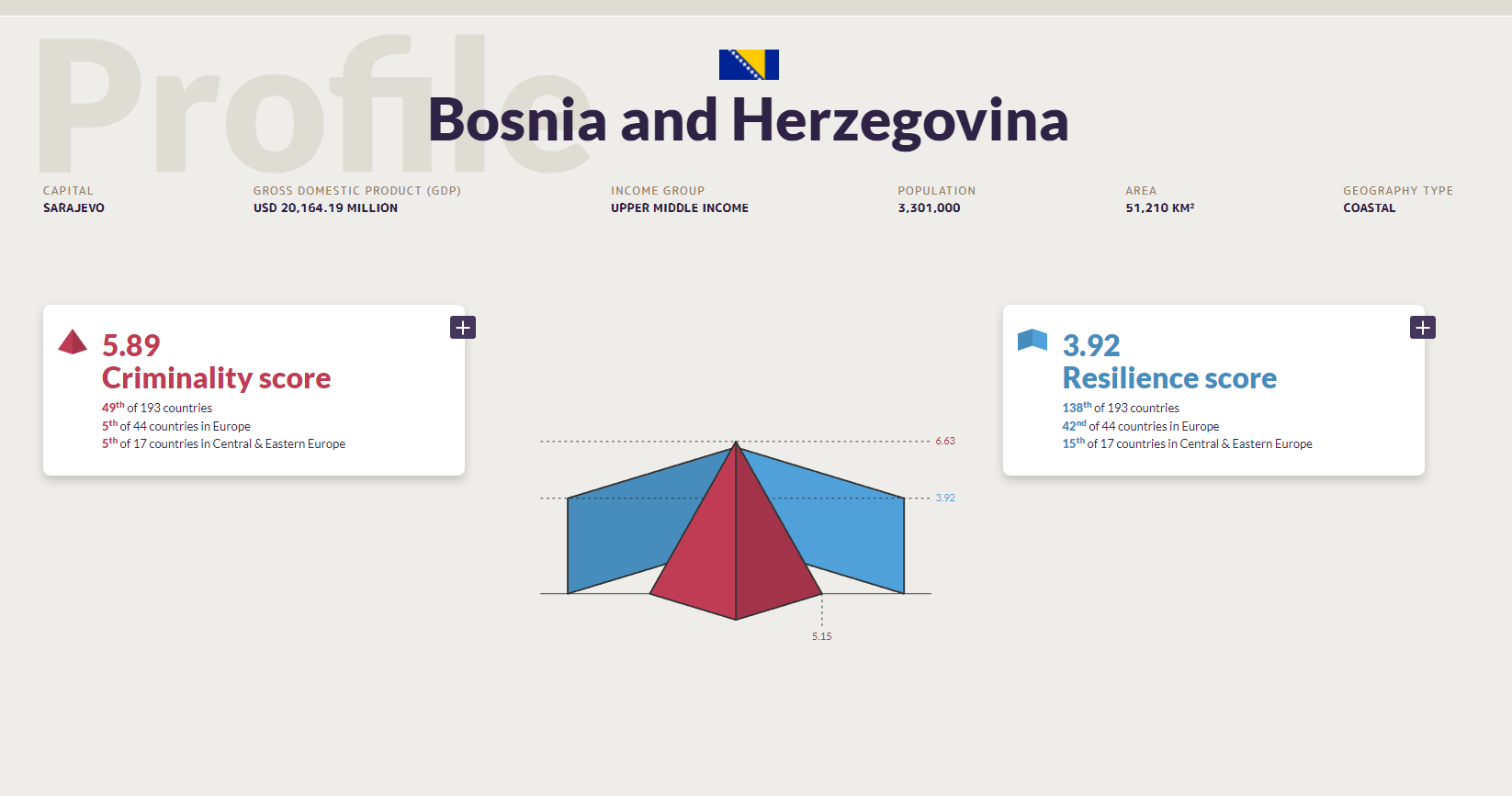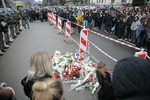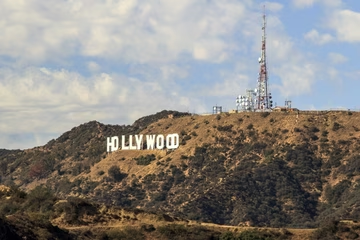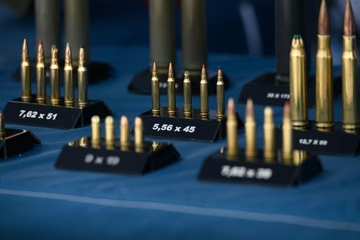
According to the Global Organised Crime Index for 2020, Bosnia and Herzegovina was ranked as 49th in the world with 5.89 index points and the 5th in Europe, as one of the transit points for human trafficking, drug and weapon trade.
The report is divided into two sections – criminality and resilience, which further treat the issues of people, trade, drugs, environment, criminal actors as well as the leadership and governance, criminal justice and security, economic and financial environment, as well as civil society and social protection.
“Bosnia and Herzegovina serves as a country of origin, transit point and destination (albeit to a lesser extent) for human trafficking. Victims are trafficked mainly for sexual exploitation and forced labour. Bosnia and Herzegovina is as a transit country for victims of Chinese, Indian and Turkish descent, as well as victims from Middle Eastern and the Gulf countries attempting to enter Europe. Bosnians are often victims of forced labour in the construction industry and other sectors in neighbouring Balkan and European countries,” reads the opening section.

Arms trafficking is emphasised as a significant issue in the country, where many arms from the 1990s remain in circulation, making Bosnia and Herzegovina one of the top countries globally in terms of legal and illegal firearms in civilian possession. It is also situated along one of the trafficking routes between large arms-supplying countries, such as Serbia and Montenegro, and destination countries for illegal firearms in Europe, the report said.
As for drugs, Bosnia and Herzegovina is assessed as an important transit country for heroin and cannabis bound for Europe, with domestic consumption of cannabis and some cultivation and production of cannabis and synthetic drugs, such as MDMA, also known as ecstasy or molly, i”s known to occur.”
According to the Global Organised Crime Index, both mafia-style groups, criminal networks, state-embedded actors and foreign criminal groups have a presence in Bosnia and Herzegovina, with mafia-style groups being heavily involved in drugs, particularly heroin, and arms trafficking.
The report also explains the country's complex political setup and governance, which makes it harder for its authorities to cope with the aforementioned issues.
“Although leaders have vowed to fight crime, they have ultimately lacked the ability to take national leadership on the issue − for example, by outlining a coherent national security strategy. With several cantonal governments, it is difficult to root out political corruption and nepotism, which enables a high degree of state capture by organized crime actors. While the country has adopted satisfactory policies against corruption and organized crime on paper, independent safeguards against corruption are weak and grand corruption and state capture remain systemic issues,” reads the report.
It also warns that Bosnia's judiciary is “weak and often suffers from political influence,” and that “as a result it cannot consistently guarantee due process.”
“Additionally, Bosnia and Herzegovina lacks the infrastructure to control its borders, making it difficult to fight illicit flows moving across its borders,” it added.
Read the full report here.
Kakvo je tvoje mišljenje o ovome?
Učestvuj u diskusiji ili pročitaj komentare





 Srbija
Srbija
 Hrvatska
Hrvatska
 Slovenija
Slovenija


























































